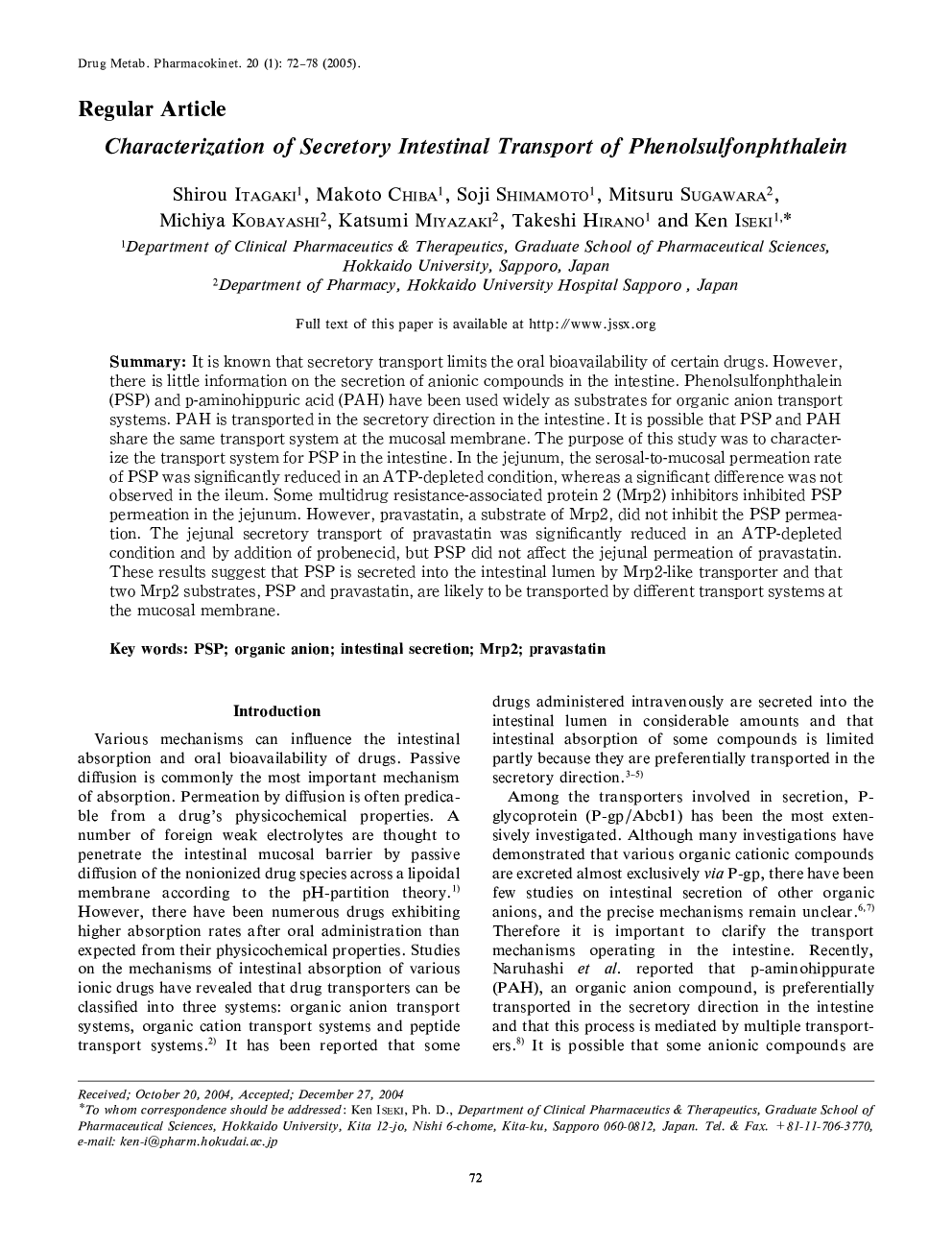| Article ID | Journal | Published Year | Pages | File Type |
|---|---|---|---|---|
| 8993141 | Drug Metabolism and Pharmacokinetics | 2005 | 7 Pages |
Abstract
It is known that secretory transport limits the oral bioavailability of certain drugs. However, there is little information on the secretion of anionic compounds in the intestine. Phenolsulfonphthalein (PSP) and p-aminohippuric acid (PAH) have been used widely as substrates for organic anion transport systems. PAH is transported in the secretory direction in the intestine. It is possible that PSP and PAH share the same transport system at the mucosal membrane. The purpose of this study was to characterize the transport system for PSP in the intestine. In the jejunum, the serosal-to-mucosal permeation rate of PSP was significantly reduced in an ATP-depleted condition, whereas a significant difference was not observed in the ileum. Some multidrug resistance-associated protein 2 (Mrp2) inhibitors inhibited PSP permeation in the jejunum. However, pravastatin, a substrate of Mrp2, did not inhibit the PSP permeation. The jejunal secretory transport of pravastatin was significantly reduced in an ATP-depleted condition and by addition of probenecid, but PSP did not affect the jejunal permeation of pravastatin. These results suggest that PSP is secreted into the intestinal lumen by Mrp2-like transporter and that two Mrp2 substrates, PSP and pravastatin, are likely to be transported by different transport systems at the mucosal membrane.
Related Topics
Health Sciences
Pharmacology, Toxicology and Pharmaceutical Science
Drug Discovery
Authors
Shirou Itagaki, Makoto Chiba, Soji Shimamoto, Mitsuru Sugawara, Michiya Kobayashi, Katsumi Miyazaki, Takeshi Hirano, Ken Iseki,
